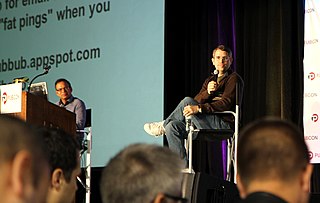A Quote by Guy Kawasaki
Klout and various measurements of influence are fun. I love to see where I score on them, but there's a computer algorithm behind the calculation. If there's an algorithm, it can be gamed. Even if it's not gameable, you have to take a leap of faith that the number of followers, retweets, mentions, whatever really mean something.
Related Quotes
Every computer divides itself into its hardware and its software, the machine host to its algorithm, the human being to his mind. It is hardly surprising that men and women have done what computers now do long before computers could do anything at all. The dissociation between mind and matter in men and machines is very striking; it suggests that almost any stable and reliable organization of material objects can execute an algorithm and so come to command some form of intelligence.
The Facebook algorithm designers chose to let us see what our friends are talking about. They chose to show us, in some sense, more of the same. And that is the design decision that they could have decided differently. They could have said, "We're going to show you stuff that you've probably never seen before." I think they probably optimized their algorithm to make the most amount of money, and that probably meant showing people stuff that they already sort of agreed with, or were more likely to agree with.
With recidivism algorithms, for example, I worry about racist outcomes. With personality tests [for hiring], I worry about filtering out people with mental health problems from jobs. And with a teacher value-added model algorithm [used in New York City to score teachers], I worry literally that it's not meaningful. That it's almost a random number generator.
The burgeoning field of computer science has shifted our view of the physical world from that of a collection of interacting material particles to one of a seething network of information. In this way of looking at nature, the laws of physics are a form of software, or algorithm, while the material world-the hardware-plays the role of a gigantic computer.
































